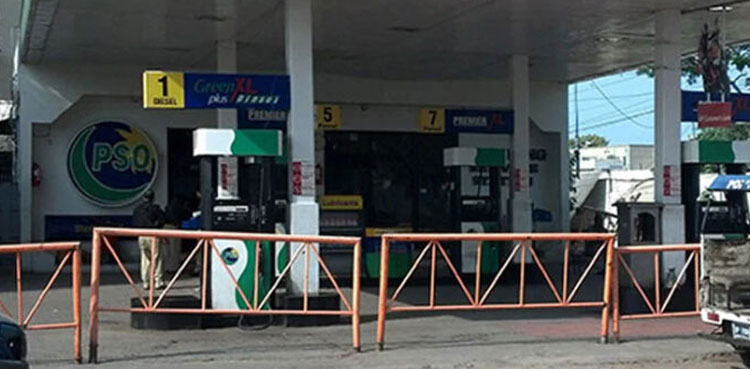Amid the ongoing massive power outages, residents of Pakistan now have to deal with a fuel shortage as the Pakistan Petroleum Dealers Association (PPDA) announced a nationwide strike starting today. The PPDA declared a nationwide protest as negotiations with both provincial and federal authorities had reached an impasse.
PPDA chairman Abdul Sami Khan expressed frustration over the lack of resolution despite extensive dialogue with government officials. “They asked us to call off the strike and assured us of resolving the issue, but we cannot delay our action based on mere assurances,” Khan stated in an interview with Dawn.
Khan disclosed that he had engaged with a spectrum of stakeholders within the government, including high-ranking officials such as the finance minister, chairman of the Federal Board of Revenue (FBR), Oil and Gas Regulatory Authority (Ogra) chief, petroleum secretary, and representatives from the oil marketing companies’ advisory council. However, he lamented that the core concerns of the dealers remained unaddressed.
“We will not entertain further discussions with the government until the unjust turnover tax is withdrawn,” asserted Khan, underscoring that the imposition of double taxation was not only unfair but also unconstitutional
Khan disclosed that he had engaged with a spectrum of stakeholders within the government, including high-ranking officials such as the finance minister, chairman of the Federal Board of Revenue (FBR), Oil and Gas Regulatory Authority (Ogra) chief, petroleum secretary, and representatives from the oil marketing companies’ advisory council. However, he lamented that the core concerns of the dealers remained unaddressed.
“We will not entertain further discussions with the government until the unjust turnover tax is withdrawn,” asserted Khan, underscoring that the imposition of double taxation was not only unfair but also unconstitutional
The PPDA chairman outlined the logistical implications of the strike, indicating that over 13,000 petrol stations across the country would cease operations starting at 6am on July 5. He warned that unless their demands were met and formally notified, the strike could potentially extend beyond the initial shutdown, as reported by Dawn.
Khan appealed to petrol station owners and operators to ensure adequate stockpiling of fuel supplies by July 4, preparing for the impending disruption.
In response to the impending strike, the petroleum division took proactive measures by establishing a monitoring cell to oversee the fuel supply chain and coordinate with relevant stakeholders. Representatives from oil marketing companies (OMCs), Ogra, and the petroleum division were appointed as focal persons within the monitoring cell.
To mitigate public inconvenience and potential disruptions to industry operations, the petroleum division issued directives to OMCs to maintain sufficient stocks of petroleum products at designated sites. This preemptive measure aimed to secure an uninterrupted supply chain during the strike period.
The controversy stems from the recent budget’s introduction of a turnover tax, which petrol dealers argue constitutes double taxation. They contend that existing tax obligations, including a fixed withholding tax and now an additional turnover tax of 0.5 per cent, unfairly burden their operations.
The Chairman of FBR has formerly acknowledged statements regarding the abolition of the turnover tax. Yet, any potential rescission of this decision would necessitate modifications in the law. According to the Secretary of Petroleum, the implementation of the turnover tax has been formally decreed by the Finance Act of 2024-25. Dawn news stated that any amendments to this tax would be through a legislative process.

